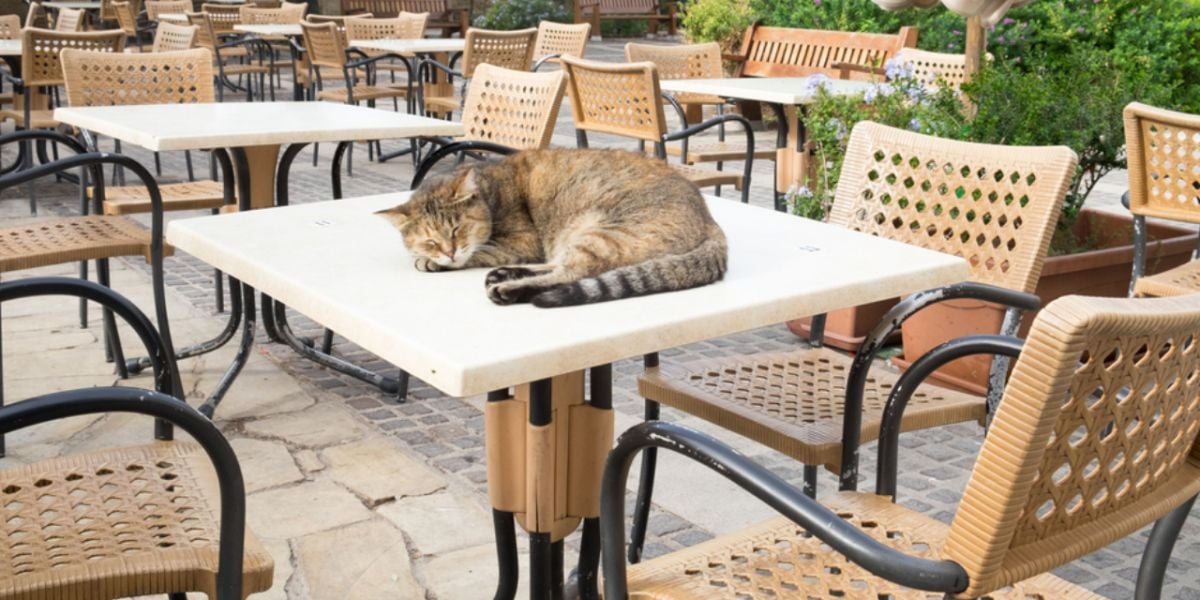
If you are planning a move to Malta, your pet can be part of the journey too. Bringing an animal into the country is entirely possible, as long as you prepare properly and take the necessary steps in advance.

Vaccinated dogs, cats, and ferrets against rabies are welcome in Malta.
Good to know:
Conditions vary depending on whether the pets come from rabies-free countries or countries where the risk of rabies is higher.
Traveling to Malta with your pet: Dogs, cats, and ferrets
Malta follows the standard European regulations for the importation of pets and border crossing requirements. To ensure your pet can safely enter Malta, take the time to check the current requirements specific to your situation well ahead of your move.
If you are traveling to Malta with your pet, you must first request the appropriate import permit from the Ministry of Agriculture. You can find the necessary forms by clicking here.
Your pet must have a 15-digit electronic microchip that complies with ISO 11784/11785 standards and is correctly implanted by an authorized veterinarian. If it is a different model, you must have the appropriate reader. Alternatively, Maltese authorities also accept clearly legible tattoos done before July 3, 2011.
If your pet comes from a rabies-free or low-risk rabies country, it still needs to be vaccinated against this disease by an authorized veterinarian 21 days before its importation to Malta.
Between 24 and 120 hours before their arrival, dogs traveling to Malta must also be treated for tapeworm with a praziquantel-based product. This administration must be certified in the specified section of your pet's passport.
Animals coming directly from Ireland, Finland, and Norway are exempt from this requirement.
Your pet must have a pet passport if it comes from a European Union country.
Bringing your pet from a third country
If your pet has lived in a high-risk rabies country, it must first be equipped with an electronic microchip and then vaccinated against rabies.
Your pet must then undergo a blood test at least 30 days after the vaccination date, but not less than three months before the arrival date in Malta. The blood sample is sent to an authorized laboratory, and if the results are satisfactory, the veterinarian issues a health certificate for the animal.
Regarding the international pet health certificate, it may vary from one country to another, but it remains an essential document for the animal to be allowed entry into the country by customs. This document must be issued by an authorized veterinarian within 10 days prior to travel to Malta.
Cats and dogs are examined by authorized veterinarians upon their arrival in Malta. If they show symptoms of communicable diseases, it is up to their owner to bear the costs of further health checks.
As is the case for pets from EU countries, dogs traveling to Malta must also be treated for tapeworm with a praziquantel-based product between 24 and 120 hours before their arrival. This treatment must be certified in the specified section of your pet's passport.
Other pets traveling to Malta
If you are importing a bird, invertebrate, tropical fish, reptile, amphibian, or mammal (rodent or rabbit) from other EU states or other approved countries/territories, they do not need to be vaccinated against rabies.
However, they must have a health certificate to be allowed entry into Maltese territory. Take the time to gather all useful information from the health and sanitary authorities of your country of origin. Rabbits and rodents imported from third countries may be subject to quarantine restrictions.
If you are importing a turtle or a parrot, remember to inquire with the Convention on International Trade in Endangered Species of Wild Fauna and Flora (CITES, link below). As its name suggests, this convention is intended to protect certain species from import and export.
In this case, you must apply for a special permit from CITES. Feel free to inquire with the veterinary authorities of your country of origin, for example, with the Ministry of Agriculture and Fisheries.
Important:
Dogs, cats, and ferrets under 15 weeks of age cannot be imported to Malta.
When moving to Malta, you can bring up to 5 pets (dogs, cats, or ferrets). There are some exceptions; for example, if you are traveling to Malta to participate in a competition, exhibition, or sporting event.
If you do not comply with the rules, your pet may be quarantined for up to 4 months.
Useful links:
Convention on International Trade in Endangered Species of Wild Fauna and Flora - CITES
We do our best to provide accurate and up to date information. However, if you have noticed any inaccuracies in this article, please let us know in the comments section below.








